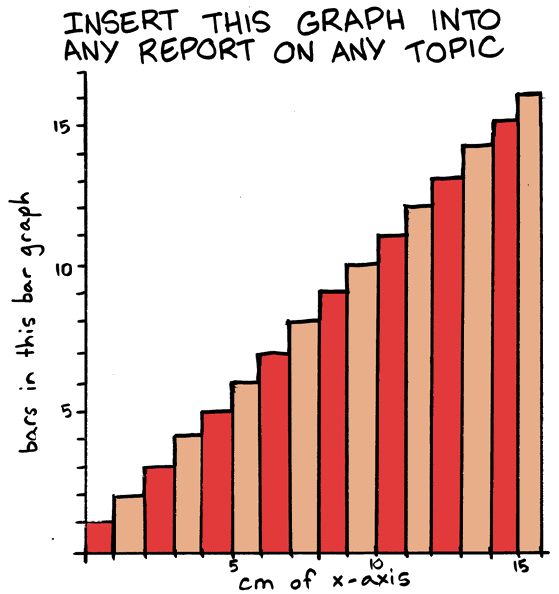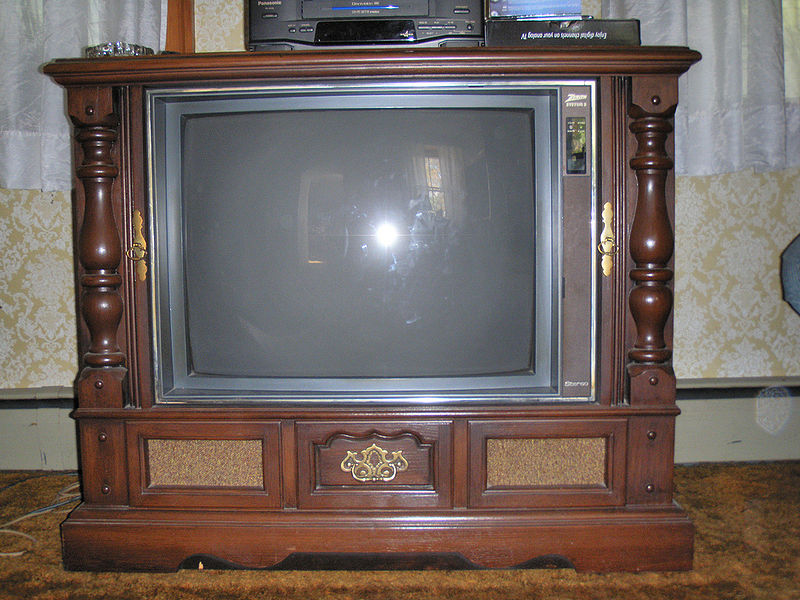
Source: “Insert this Chart,” Piko3000, Photobucket
The bar chart in this illustration is a joke. You can't just insert any graph into any report on any topic, but often we would like to because finding data, facts, and ideas to support our persuasive essays can be difficult and confusing unless we understand how to find and analyze information that's appropriate for our topics.
You know from previous lessons that when you write a persuasive essay you have lots of things to consider: you must develop your thesis statement; organize your arguments and counterarguments; and keep your audience, purpose, and context in mind. In this lesson, you're going to begin to think about how to analyze the data, facts, and ideas that you need to support your argument. This is the final step in planning your persuasive essay, and this skill takes time to develop. In order to write a persuasive essay, you must have good, reliable data and facts to back up your claims.
Watching TV can make us smarter.
You probably know this is a controversial topic from listening to adults who would like to limit your TV watching and sometimes complain about your choice of programs. Because some people will have strong opinions and reasons for disagreeing with your argument, finding strong support for your essay is essential. Your assignment in this lesson is to find support for your claim that watching TV can make you smarter. How can you convince skeptical parents and teachers who don't believe you?

Source: “Zenith Floor,” Daniel Christensen, Wikimedia Commons
The television set to the left is what many TV sets looked like in the 1970s. Much has changed in the world of TV technology and programming. The same can be said of how we collect information for writing a persuasive essay. Twenty years ago students went to libraries and searched card catalogs to find books and articles to support their arguments. Although you might still go to the library, you can now do searches using the Internet and many subject-specific databases. You might even have the ability to Google the information you need from a convenient home or school computer. Such convenience, however, can lull you into thinking that everything you Google is good information. That's why you need to develop research skills. They will enable you to separate the valuable, helpful information from the useless, unreliable information.